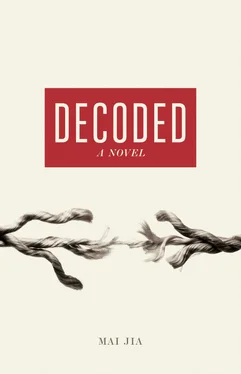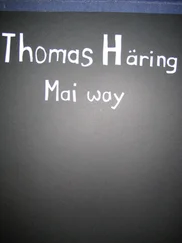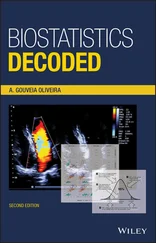Mai Jia - Decoded
Здесь есть возможность читать онлайн «Mai Jia - Decoded» весь текст электронной книги совершенно бесплатно (целиком полную версию без сокращений). В некоторых случаях можно слушать аудио, скачать через торрент в формате fb2 и присутствует краткое содержание. Год выпуска: 2014, Издательство: Allen Lane, Жанр: Современная проза, на английском языке. Описание произведения, (предисловие) а так же отзывы посетителей доступны на портале библиотеки ЛибКат.
- Название:Decoded
- Автор:
- Издательство:Allen Lane
- Жанр:
- Год:2014
- ISBN:нет данных
- Рейтинг книги:3 / 5. Голосов: 1
-
Избранное:Добавить в избранное
- Отзывы:
-
Ваша оценка:
- 60
- 1
- 2
- 3
- 4
- 5
Decoded: краткое содержание, описание и аннотация
Предлагаем к чтению аннотацию, описание, краткое содержание или предисловие (зависит от того, что написал сам автор книги «Decoded»). Если вы не нашли необходимую информацию о книге — напишите в комментариях, мы постараемся отыскать её.
Decoded — читать онлайн бесплатно полную книгу (весь текст) целиком
Ниже представлен текст книги, разбитый по страницам. Система сохранения места последней прочитанной страницы, позволяет с удобством читать онлайн бесплатно книгу «Decoded», без необходимости каждый раз заново искать на чём Вы остановились. Поставьте закладку, и сможете в любой момент перейти на страницу, на которой закончили чтение.
Интервал:
Закладка:
Well, I don’t know what kind of intellectual maggot Daddy got in his head — maybe he was persuaded by Zhendi’s cast-iron proofs — but at a time when everyone else was either avoiding the issue or hoping that he would talk to Zhendi and get him to change his topic, he not only did nothing of the kind, he even went so far as to weigh in on Zhendi’s side and take over as his thesis supervisor. Daddy consistently encouraged Zhendi to continue with his chosen subject.
In the end, the title of Zhendi’s graduation thesis was: ‘The Constant π as a Definable yet Irrational Number’. This was a subject far from anything that he had ever studied in class — it was much more the kind of topic that you would expect for an M.A. thesis. There is absolutely no doubt that his choice was heavily influenced by the books that he was reading in the attic. .
[To be continued]
When he read the first draft of Jinzhen’s graduation thesis, Young Lillie was more enthusiastic than ever. He was transfixed by the beautifully incisive and logical thinking recorded therein, but some of the mathematical proofs he felt to be unnecessarily complicated and in need of improvement. The improvements were aimed at simplifying the presentation and removing unnecessary elements to the proofs. However, in order to develop the basic proofs (which in some cases were extremely elaborate), he had to use comparatively sophisticated and direct means, showing an understanding that was far from simply being confined to the field of mathematics. The first draft of Zhendi’s thesis came to 20,000 characters. After a couple of revisions, the final version came in at just over 10,000 characters. Later on it was published in the magazine Popular Mathematics — and made not a small splash in Chinese mathematical circles. However, there seemed to be no one who was prepared to believe that Zhendi had done it all on his own because, having been revised a couple of times, the quality had also been significantly improved. It really didn’t look like an undergraduate student’s thesis, but the ground-breaking essay of an established academic.
Having said that, the good points and the failings of Zhendi’s thesis were both perfectly clear: when you talk about the good points, beginning from a single mathematical constant, Zhendi had developed Georg Weinacht’s binary theory into a pure mathematics solution for one of the major problems facing scholars working on the issue of artificial intelligence. This gave the reader something of the feeling of having seen the invisible wind caught and held in the human hand. The failing of this thesis is that it was all built upon a supposition, whereby π is treated as a constant — all the proofs that he had developed were based upon this theory and so it was impossible for the reader not to feel that this particular castle had been built entirely upon sand. If you wanted the castle to be built upon firmer foundations, if you wanted to demonstrate the academic value of this thesis, then you would first have to prove that π is indeed a genuine constant. As to the problem of whether or not π is actually a constant, even though this issue was first raised by mathematicians many centuries ago, it still has not been conclusively proved. Today most mathematicians do believe that it is a constant, but the fact remains that as long as proof is lacking, it remains in the realm of supposition — you cannot ask that everyone else agree with you. In the same way, until Newton noticed that an apple will always naturally fall to the earth and expressed this in terms of his theory of universal gravity, everyone had the right to express their own doubts as to gravity’s existence.
Of course, if you don’t believe that π is indeed a constant, then Jinzhen’s thesis was completely useless — the theory upon which it was based falls through. On the other hand, if you accept that π is a constant, then you would be amazed by what he had managed to achieve — it was somewhat like bending an iron bar into the shape of a flower. In his thesis Jinzhen suggested that human intelligence should be regarded as a mathematical constant and an irrational number, one that never comes to an end. If you accept this concept, then the second part of Georg Weinacht’s binary theory comes into play, which could serve to resolve one of the major problems with developing artificial intelligence. Human intelligence also includes an element of confusion. Confusion is indefinable: it represents something that you cannot know completely; it is also something that you cannot replicate. Therefore he suggested that under present conditions, it is impossible to be very optimistic about the prospect of entirely replicating human intelligence by artificial means, since the closest you were going to get was a near approximation.
I should mention that there are plenty of mathematicians who entirely agree with Zhendi’s position, including many working today. You could say that there was nothing new about his conclusion: the interesting thing is that starting from a daring hypothesis about the binary nature of the mathematical constant π, he went on to develop a proof for this derived from pure mathematics. At least he was trying to develop a proof; the problem is that the materials he was using (the foundations of his house) had not been proved themselves.
To put it another way, if one day someone does succeed in proving that π is a constant, then the value of this thesis is clear. The problem is that this day still has not dawned, so strictly speaking, his work remains completely pointless — its only success lies in demonstrating his own intelligence and daring. But thanks to his connection with Young Lillie, many people found it difficult to believe that it was entirely his own work and hence his genius remained under question. The fact is that this thesis brought nothing good to Jinzhen: it did not change his life in any way, but it did change the very last years of Young Lillie’s life. . [Transcript of the interview with Master Rong]
I can be absolutely categorical: Zhendi wrote that thesis all on his own. Daddy told me that apart from recommending a couple of reference books and writing the introduction, he had nothing to do with any of the contents — it was all Zhendi’s hard work. I remember what Daddy wrote in the introduction. He said, ‘The best way to deal with our demons is to go out and fight them — let the devils see how strong we are. Georg Weinacht is a demon infesting the sacred halls of scientific research, and for a long time he has been able to get away with murder. Now is the time for us to lay this demon to rest. This thesis will serve to set Weinacht’s pernicious theories in their place forever; although some of the notes that it strikes are dull and muffled, the rest ring true.’
Not long after the thesis was published, Daddy went on a trip to Beijing. No one knew what he was up to; he left quite suddenly one day without telling anyone what he was doing. About a month later, when someone came to N University with three decisions from the central authorities, we finally realized that this must have been the motive for Daddy’s earlier trip to Beijing. The three decisions were:
1. They gave permission for Daddy to resign as chancellor.
2. The government gave the necessary money to found a computer research unit at the university.
3. Daddy was going to be responsible for setting up this research facility.
At that time there were a lot of people who were hoping to be recruited by this new research facility, but after Daddy interviewed them, he decided in the end that none of them came up to Zhendi’s standard. Zhendi was the very first person recruited for the research facility and as things turned out he was the only person who could have done it — the remainder of the people hired were basically just his assistants, helping out with day-to-day tasks. This gave people a very bad impression, suggesting that this international standard research unit had basically been monopolized by members of the Rong family, and there was a lot of gossip about it.
Читать дальшеИнтервал:
Закладка:
Похожие книги на «Decoded»
Представляем Вашему вниманию похожие книги на «Decoded» списком для выбора. Мы отобрали схожую по названию и смыслу литературу в надежде предоставить читателям больше вариантов отыскать новые, интересные, ещё непрочитанные произведения.
Обсуждение, отзывы о книге «Decoded» и просто собственные мнения читателей. Оставьте ваши комментарии, напишите, что Вы думаете о произведении, его смысле или главных героях. Укажите что конкретно понравилось, а что нет, и почему Вы так считаете.












